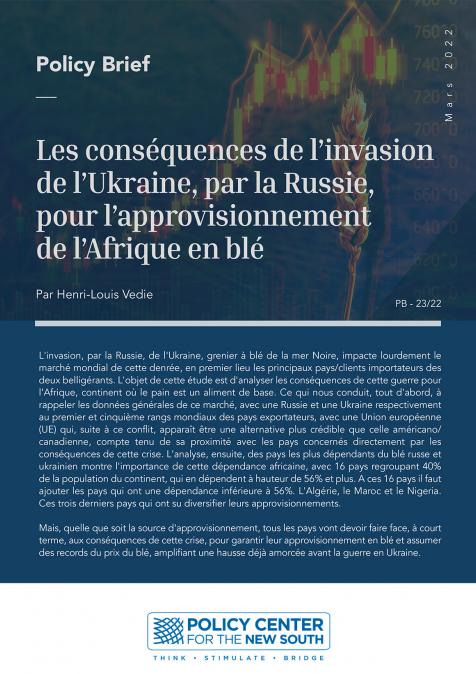John Sawers, former Chief of the Secret Intelligence Service (MI6), shares his insights on how security threats have evolved with the rise of digital technologies and social media. In this interview, he offers a compelling exploration of the shift from traditional methods to contemporary security challenges. Sawers examines how intelligence approaches have adapted to address new threats, including the influence of social media on democratic processes and the evolving global geopolitical landscape. The discussion provides An insightful analysis of the current dynamics in intelligence work and highlights the critical issues facing intelligence services in an increasingly interconnected and digital world.
RELATED CONTENT
-
AuthorsMohamed BenabidApril 13, 2022The war between Russia and Ukraine unfolds on many theaters, including information and communication. Hybrid strategies and media old and new are utilized for information, persuasion and propaganda, with one underlying predicament, fake news, constantly lurking. Each side is keen on controlling its messages and relaying its narrative. On one hand, Russian communication seeks to legitimize its action and turn the opponent's camp from oppressed to provocateur. On the other, Ukrainian ...
-
Ahmed Ouhnini et Henri Louis VédieApril 08, 2022L’Ukraine et la Russie comptent parmi les plus grands exportateurs de blé au monde et jouent un rôle capital dans la sécurité alimentaire dans le globe. Or, plusieurs pays d'Afrique se re ...
-
 AuthorsMarch 29, 2022The heavy financial sanctions on Russia after the invasion of Ukraine sparked speculations that the weaponization of access to reserves in dollars, euros, pounds, and yen would spark a division in the international monetary order. China would tend to strengthen its own international payments system and accelerate the establishment of its currency – the Renminbi – as a rival reserve currency to reduce its vulnerability to moves of a similar nature against it. Countries facing geopoli ...
AuthorsMarch 29, 2022The heavy financial sanctions on Russia after the invasion of Ukraine sparked speculations that the weaponization of access to reserves in dollars, euros, pounds, and yen would spark a division in the international monetary order. China would tend to strengthen its own international payments system and accelerate the establishment of its currency – the Renminbi – as a rival reserve currency to reduce its vulnerability to moves of a similar nature against it. Countries facing geopoli ... -
AuthorsMarch 29, 2022Russia's invasion of Ukraine, the Black Sea granary, severely impacts global wheat markets, and especially hits the two warring parties' primary importing countries/clients. This study examines impacts of this war on Africa, where bread is a basic staple. This brings us to start with a review of broad market data, with Russia and Ukraine respectively ranking first and fifth among global wheat exporters, and the European Union (EU) gaining an edge as an alternative to the U.S./Canada ...
-
AuthorsMarch 29, 2022L'invasion, par la Russie, de l'Ukraine, grenier à blé de la mer Noire, impacte lourdement le marché mondial de cette denrée, en premier lieu les principaux pays/clients importateurs des deux belligérants. L'objet de cette étude est d'analyser les conséquences de cette guerre pour l’Afrique, continent où le pain est un aliment de base. Ce qui nous conduit, tout d'abord, à rappeler les données générales de ce marché, avec une Russie et une Ukraine respectivement au premier et cinquiè ...
-
Nihal El Mquirmi & Helmut SorgeMarch 25, 2022The debate around the use of private military and security companies is deeply polarized, with some authors portraying such military contractors as ‘messiahs’, praising their efficiency i ...
-
March 25, 2022Africafé est une émission du Policy Center for the New South qui décrypte l’actualité des organisations africaines et de l’Afrique. A travers de courtes interviews, l’émission tente de proposer d’aborder de manière pédagogique les enjeux des organisations africaines et l’actualité du co...
-
AuthorsMarch 22, 2022African states are in a vulnerable position. The invasion of Ukraine could affect food security and trigger a spike in oil prices, inflicting economic duress on African households. The Black Sea region is home to vast fertile farmlands, and war in the “breadbasket of the world” could threaten wheat and fertilizer supplies. Increased economic hardship and social discontent do not bode well for democratic governance in Africa, especially in light of the recent spate of military coups. ...
-
AuthorsMarch 17, 2022“Turkey’s turn to Africa is the result of several factors: the economic liberalization process undertaken in the 1990s, Ankara’s aim for greater voice in international institutions, and Turkey's rivalry with Egypt and the Gulf states. Scholars have observed that Turkey's public diplomacy, which some have dubbed the “Ankara consensus” is consciously designed as an alternative to the Washington consensus of neoliberal economic growth and the Beijing consensus of state-led growth, that ...
-
 AuthorsMarch 16, 2022Of all the regions included in this report series, Tillabéri is the region that scores best when it comes to both general community resilience, as well as traditional and religious authorities’ functioning. The region is not as exposed to shocks as Est (Burkina Faso) and Ménaka (Mali), and its ability to recover from shocks is high compared to the other regions. Trust in traditional and religious authorities is comparatively high as is their equal treatment of different subgroups in ...
AuthorsMarch 16, 2022Of all the regions included in this report series, Tillabéri is the region that scores best when it comes to both general community resilience, as well as traditional and religious authorities’ functioning. The region is not as exposed to shocks as Est (Burkina Faso) and Ménaka (Mali), and its ability to recover from shocks is high compared to the other regions. Trust in traditional and religious authorities is comparatively high as is their equal treatment of different subgroups in ...








